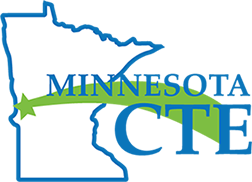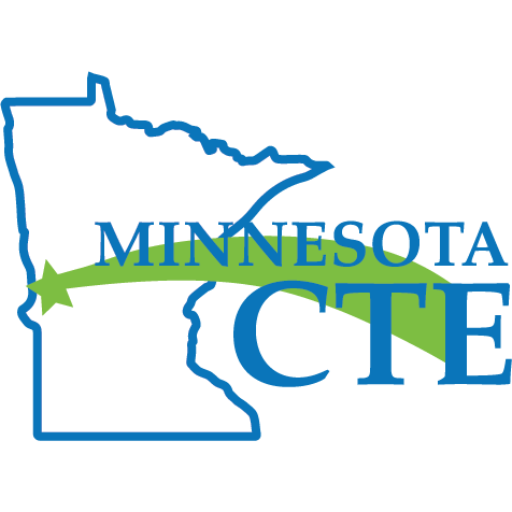Minnesota’s most popular Manufacturing Careers teaching licensure program.
Flexible/online. Self-paced. Grant funded.
More than 450 teachers to date have earned their licenses through our programs. Our programs provide a personalized and efficient path to licensure without tuition, grades, textbooks, or the traditional confines of the academic year.
Jump to: About the Manufacturing Careers License | About our Licensure Program | Program Enrollment | Program Cost | Program Standards | FAQs
About the CTE Manufacturing Careers Teaching License
A Minnesota CTE Construction, Manufacturing, and Transportation teacher licensed in Manufacturing Careers (300200) (i.e., the advanced manufacturing career cluster) is authorized to provide instruction to students in grades 7 through 12 in preparation for careers in planning, managing, and performing the processing of materials into intermediate or final products and related professional and technical support activities such as production planning and control, maintenance and manufacturing, and process engineering. There are more than 247 districts in Minnesota with Construction, Manufacturing, and Transportation programs, with very high demand for the CTE Manufacturing Careers license.
Manufacturing Careers (300200) teachers are qualified to teach machining, fabrication, mechatronics, welding, robotics, engineering, HVAC, emerging technologies, and more (see courses). Construction, Manufacturing, and Transportation teachers provide students a competitive advantage in their career goals through career exploration and preparation, technical skill instruction, sustaining a culture of safety, and leadership and social-emotional development by advising a chapter of the SkillsUSA student organization.
Note: Manufacturing Careers (300200) is a CTE license and is eligible for Minnesota Department of Education program approval, which affords access to CTE Revenue funding, federal Perkins grants, and more. This is in contrast to the Technology (100100) license, which may have some similar skills and standards as the Manufacturing license, but is not a CTE license and is ineligible for these funding options.

Courses in Manufacturing Careers
About our Licensure Program
Our online, flexible Manufacturing Careers licensure program is both initial licensure for teachers new to the profession who are industry experts (i.e., Tier 1) and working toward permanency (Tier 3), and additional licensure for teachers who hold a current teaching license (Tier 3 or 4) and are looking to add another licensure area. Individuals without either industry experience or teaching experience (e.g., a recent high school graduate) would be best served in a traditional teacher preparation program.
Teachers joining the profession with a Tier 1 or Tier 2 license often have years of industry experience, industry-recognized certifications and credentials, and training that provides significant relevance to the classroom. We value that experience. Tier 1 (industry experts) and Tier 3 are really just two sides of the same coin. While a Tier 3 teacher has formal training in education, they often struggle to master all of the subject-matter content and industry skills, compared to a Tier 1 teacher who knows their content and subject-matter well, but is still learning how to teach. Tier 3 teachers can use professional development to slowly grow and master the subject-matter content, but for too long industry experts and Tier 1 teachers were expected to return to college for a degree, take night or weekend classes, and pay thousands of dollars in tuition to master the teaching skills. This is often unrealistic. We believe teachers should focus on their students, and our program will help you do that, while earning your Tier 3 license.
Enrollment Requirements
To enroll in our PELSB-approved teaching licensure program for Minnesota 7-12 Manufacturing Careers, candidates must meet just three requirements:
- Currently be the Teacher of Record for a Manufacturing Careers course (Tier 1, Tier 2, or an OFP in Manufacturing Careers), or you must have a job offer specifically for a Manufacturing Careers assignment in a Minnesota school district.
- Experience working with students.
- An interview with program staff.
Removing barriers to licensure.
Cost
$7,000
This program is generally free for teacher candidates accepted into the program thanks to grant funding from the Service Cooperatives’ CTE Consortium Grant and PELSB’s Pathways Preparation Grant.
$3,500
This program is generally free for teacher candidates accepted into the program thanks to grant funding from the federal Perkins Grant and the Minnesota Service Cooperatives’ CTE Consortium Grant.
Program Required Standards
Our licensure program is flexible and self-paced. We start by mapping out any current industry experience, teaching experience, and prior knowledge or coursework you have to specific licensure standards; we do not need you to complete extra work for standards you are already an expert in. We then design a custom plan with you for any standards that are unmet and you need help with. This usually looks like professional development, online modules, participating in teacher organization trainings, etc.; a custom experience that best fits how you want to learn. Throughout the program, and even after program completion, we provide mentoring, coaching, curriculum, and resources to ensure your success. Ultimately, when you are able to show proficiency in all of the standards, we recommend you to PELSB for licensure.
Rethinking teacher preparation.
Step One – Core Skills
Core Skills for Teachers of CTE (8710.8000)
Candidates complete the Core Skills standards by participating in an in-person professional development conference offered by LCSC (i.e., CTE Core Bootcamp). After completing the learning experience, candidates submit evidence documents in Proserva to document their learning. We will also recognize prior learning to demonstrate the standards if candidates provide evidence of previous professional development (e.g., CTE TIP), post-secondary coursework, teaching experience, etc.
Step Two – Pedagogy/Methods
Standards of Effective Practice (8710.2000)
Initial Licensure Candidates: Candidates complete the SEP teaching methods standards by participating in online professional development offered by LCSC in Proserva. After completing the learning experience, candidates submit evidence documents in Proserva to document their learning. We will also recognize prior learning to demonstrate the standards if candidates provide evidence of previous professional development, post-secondary coursework, teaching experience, certifications, etc.
Additional Licensure Candidates: Candidates already completed the SEPs in their initial license.
Step Three – Subject Matter
Manufacturing Careers (8710.8030)
Candidates are either exempt (five years of industry experience, an industry certification, or a degree in the content area) or complete online professional development or individualized training offered by LCSC to complete these standards. We will also recognize prior learning to demonstrate the standards if candidates provide evidence of previous professional development, post-secondary coursework, work experience, certifications, etc.
Teacher Coordinator of Work-Based Learning Endorsement (8710.4825) – Optional, Strongly Encouraged
Candidates complete online professional development or individualized training offered by LCSC to complete these standards. We will also recognize prior learning to demonstrate the standards if candidates provide evidence of previous professional development, post-secondary coursework, teaching experience, etc.
Step Four – Clinical Experience
Clinical Experiences (8705.1010)
Initial Licensure Candidates: at least 100 field experience hours prior to student teaching and a minimum of 12 full-time weeks of face-to-face student teaching at the end of the program. Candidates serve as teacher of record and teach within their own classroom.
Additional Licensure Candidates: a minimum of 80 practicum hours at the end of the program. Candidates serve as teacher of record and teach within their own classroom.



